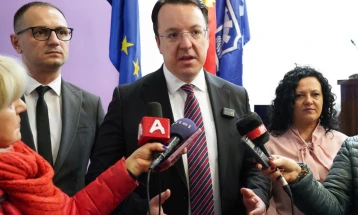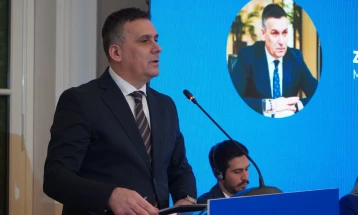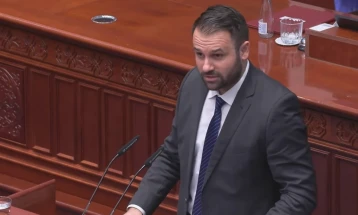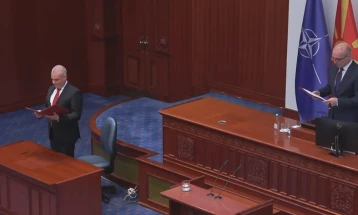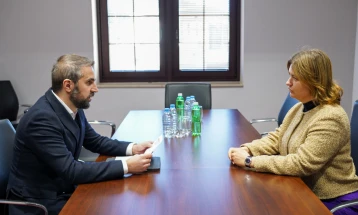Kacarska: Report generally positive, negative assessment of capacities for EU funds management concerning
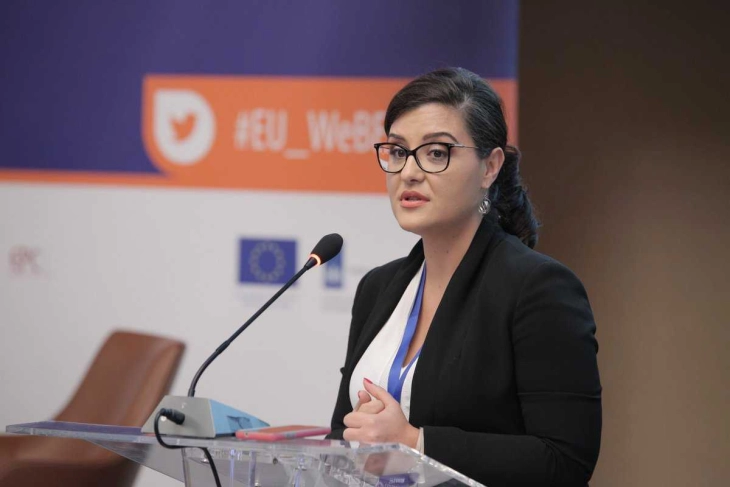
Skopje, 13 October 2022 (MIA) – The European Commission report’s generally positive note regarding the commitment of the authorities to the EU agenda is expected, considering the July breakthrough in the process of opening the accession negotiations and the formal start of the screening process, European Policy Institute (EPI) director Simonida Kacarska tells MIA.
Kacarska says there is certain progress in most chapters and if compared to previous years, the degree of preparedness to assume membership obligations remains relatively the same.
“The only chapter recording an increased level of readiness is the one on the common foreign and security policy,” says Kacarska.
Despite progress, she adds, it is obvious there are many stagnating areas that repeat in the recommendations.
“In addition, the negative assessment by the Commission regarding the capacities for management of the pre-accession funds is of great concern, and this has been repeating for several years now,” says Kacarska.
On political criteria, the report notes that North Macedonia continued its efforts to strengthen democracy and the rule of law, despite some challenges.
“The country has shown its commitment to continuing to deliver results in key areas of the fundamentals. Limited progress was made over the reporting period in addressing the outstanding recommendations made by the OSCE/ODIHR and the Venice Commission,” reads the report.
Regarding the work of Parliament, the document says it was marred by political polarisation, which delayed the adoption of many pieces of legislation.
“Parliament needs to play an active and positive role in the EU accession negotiation process. Joint and prompt efforts by all parties are needed as a matter of priority to strengthen Parliament’s role as a forum for constructive political dialogue, particularly on the EU reform agenda,” it adds.
North Macedonia remains moderately prepared in terms of its public administration reform and made limited progress in implementing last year’s recommendations. It adopted the new 2022-2025 public financial management reform programme.
“However, the adoption of the legislation on organisation and operation of state administrative bodies and the new legal framework for human resources management (revision of the Law on Administrative Servants and the Law on Public Service Employees and a new Law on Top Management Service) have been delayed,” notes the report.
On the judicial system, it says the country has achieved some level of preparation / is moderately prepared.
“Some progress was achieved in the field of the judiciary, through the steady implementation of the judicial reform strategy, thereby addressing the recommendations made by the Venice Commission and the Senior Experts’ Group on systemic rule of law issues,” reads the report.
The EC says the country has achieved some level of preparation / is moderately prepared in the prevention and fight against corruption.
“Some progress has been made as the country continued to consolidate its performance on investigating, prosecuting and trying several corruption cases, including at a high level,” notes the report.
North Macedonia has some level of preparation in the fight against organised crime. It has made some progress, mainly in operational cooperation with international partners, as well as in improving the coordination of activities to combat organised crime.
“More needs to be done to improve the effectiveness of law enforcement in fighting certain forms of crime, such as money laundering and financial crimes,” reads the document.
With regards to freedom of expression, it says the country has achieved some level of preparation/ is moderately prepared.
“Overall, it made limited progress during the reporting period to address the previous recommendations. The general context is favourable to media freedom and allows for critical media reporting, although there were some tensions during the 2021 local elections. Greater transparency is needed to regarding media advertising by state institutions and political parties. The authorities need to step up their efforts to reform the public service broadcaster, ensuring its independence, professional standards and financial sustainability,” underlines the report.
